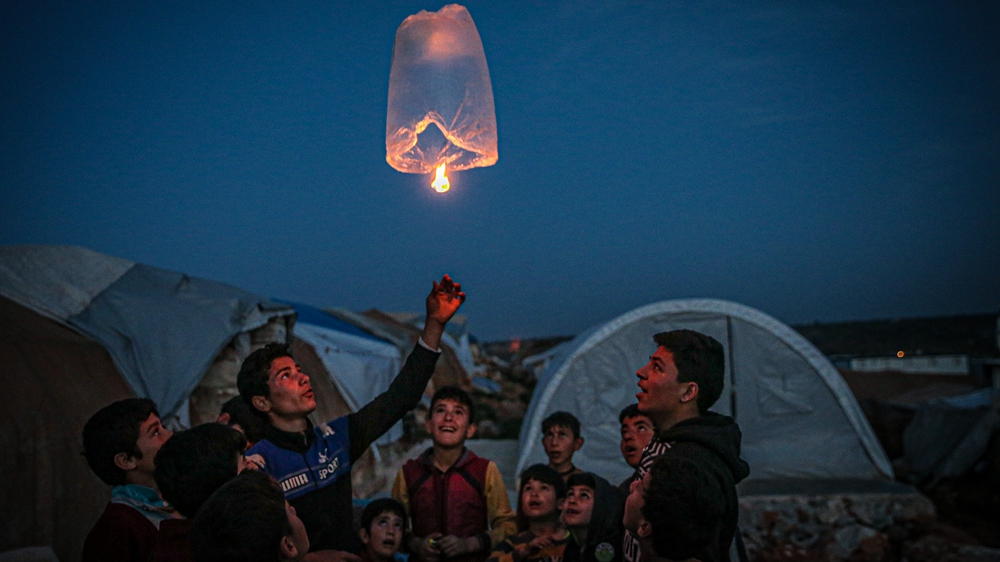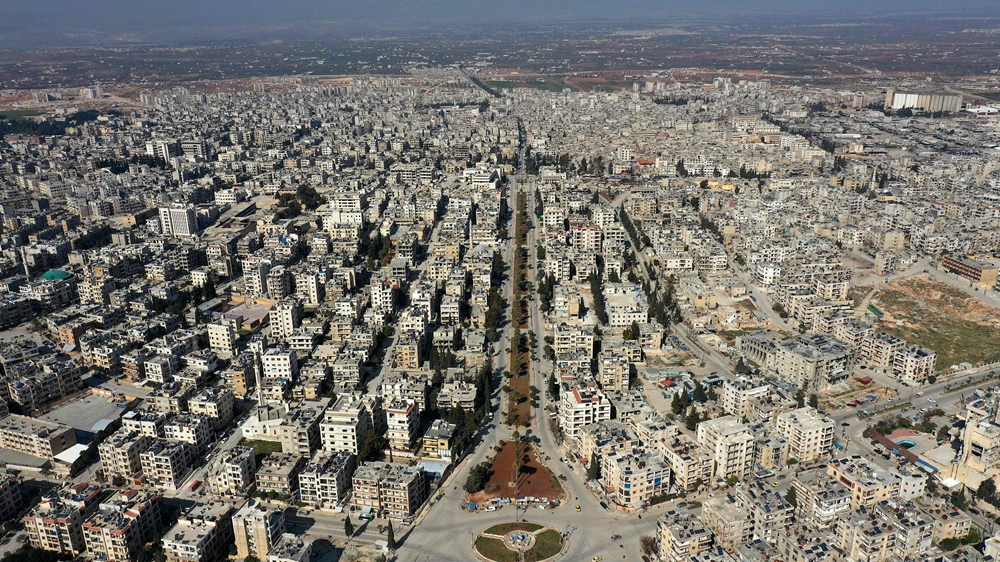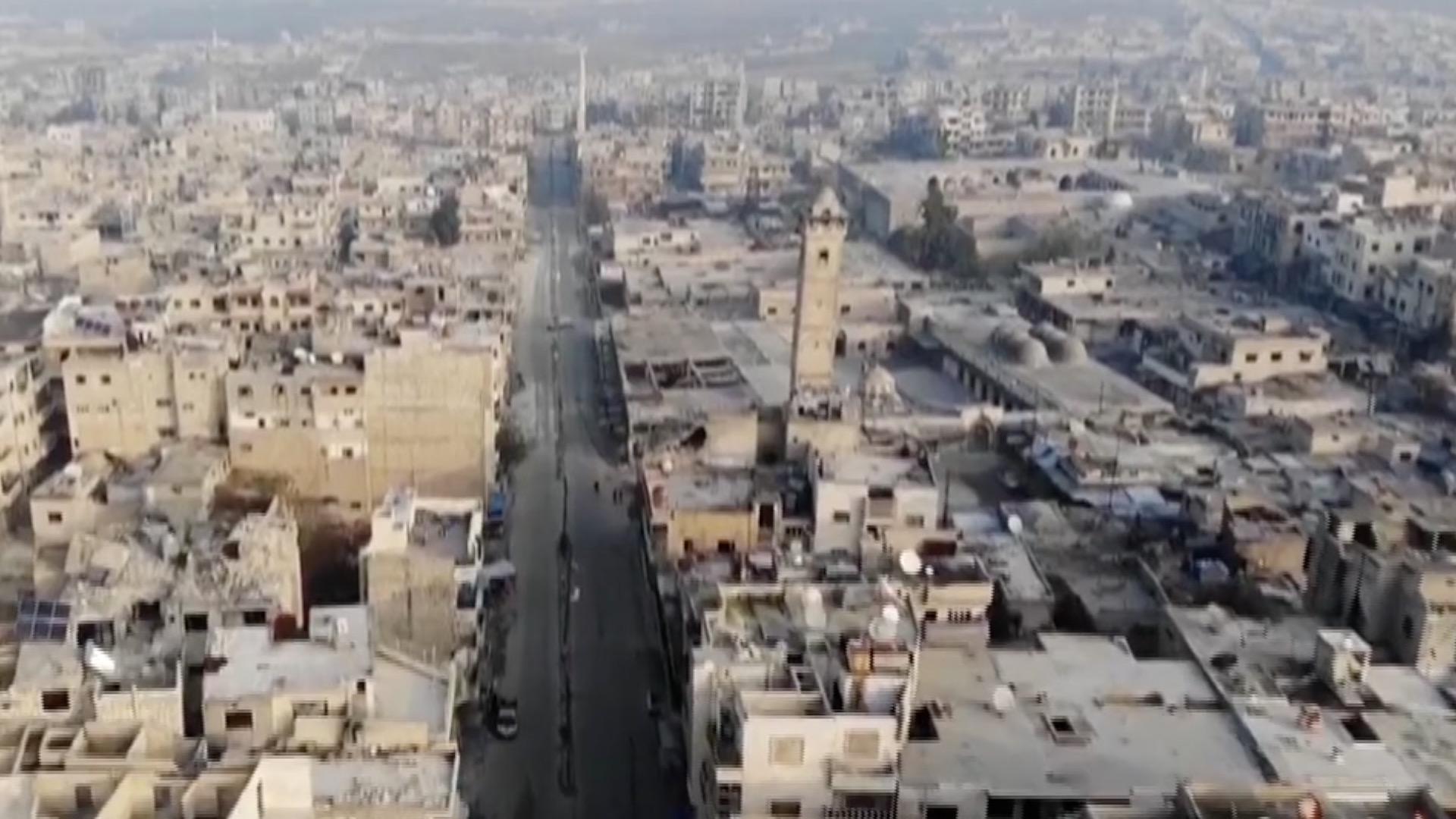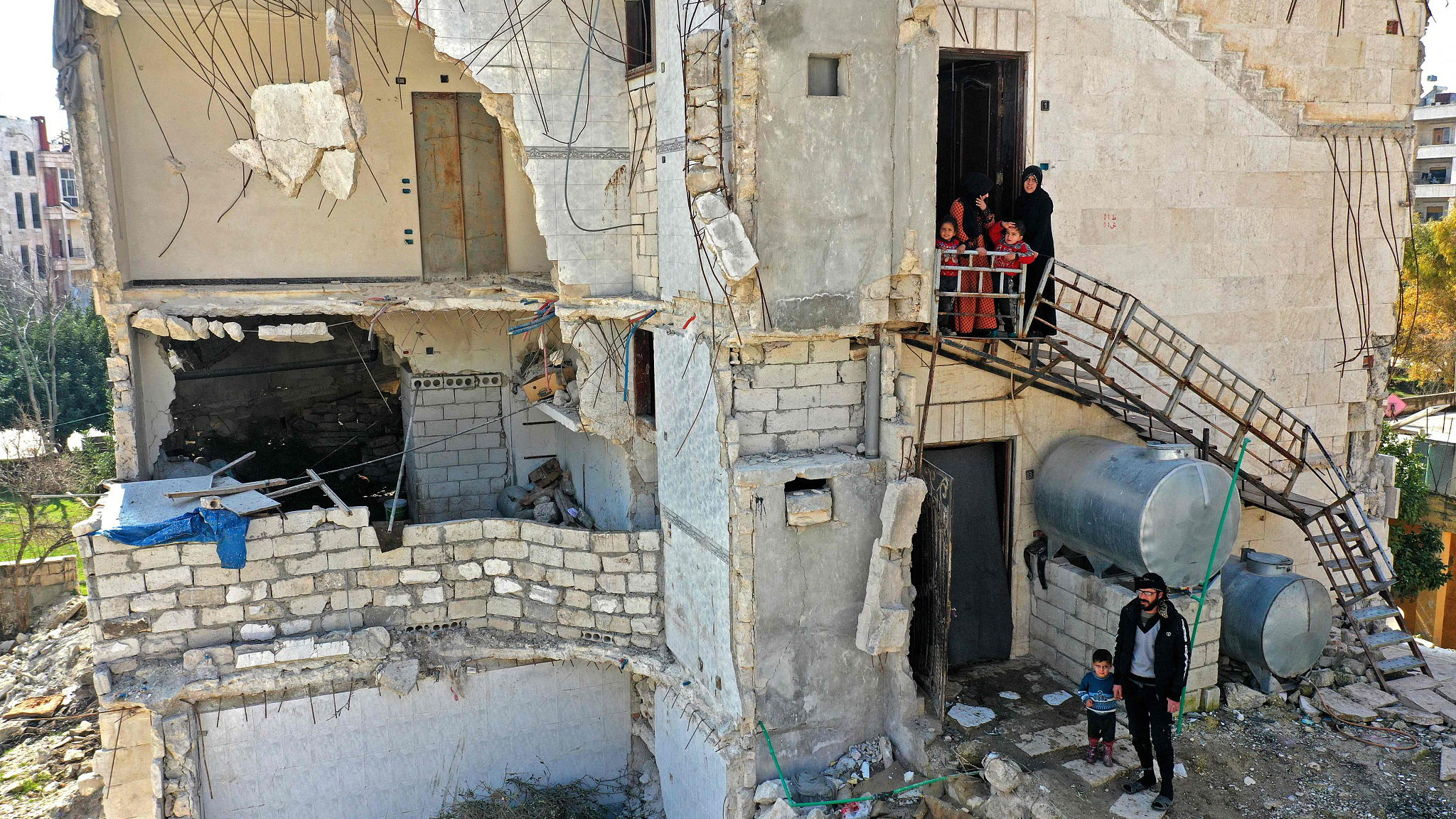
Syrian children living in makeshift tents light sky lanterns as the civil war in Syria enters its 11th year in Betinte village of Idlib province, north Syria, March 11, 2021. /CFP
Syrian children living in makeshift tents light sky lanterns as the civil war in Syria enters its 11th year in Betinte village of Idlib province, north Syria, March 11, 2021. /CFP
As the conflict entered its 11th year on Monday, the head of the UN refugee agency looked back on what he said was "one of the largest refugee crises in modern times."
"Ten years of the Syrian crisis have inflicted unimaginable human suffering and pain," said Filippo Grandi, head of United Nations High Commissioner for Refugees.
The war has displaced some 6.7 million people inside Syria, and almost 5.6 million Syrians abroad, mostly to neighboring countries, according to UN figures.
"It is imperative that we continue to reach all Syrians in need of humanitarian assistance," said United Nations Secretary-General Antonio Guterres.
There have been dozens of rounds of peace talks held to help restore the war-torn country since the first round took place in Vienna on October 30, 2015. However, the country is still struggling with multiple fires and conflicts.

An aerial view of Idlib, north Syria, February 26, 2021. /CFP
An aerial view of Idlib, north Syria, February 26, 2021. /CFP
Over the past decade, Syrians have seen no compromise between incompatible political visions or any real progress in talks between the government and opposition to reconcile them, according to Geir Pedersen, UN Special Envoy to Syria.
Echoing Guterres's suggestion of solving the Syrian crisis through political means, Pederson said that "a political solution is the only way out – and I am convinced that it is possible."
Pederson stressed that the Syrian government, opposition and key international players must identify not only what they hope to achieve, but how they can advance UN Resolution 2254, which calls for a ceasefire and political settlement in the country.
The European Council declared on March 14 that "the European Union has not changed its policy as outlined in previous Council Conclusions and remains committed to the unity, sovereignty and territorial integrity of the Syrian state."
At the end of March, the EU reportedly will co-chair with the UN a fifth Brussels conference on "supporting the future of Syria and of the region."
01:28

The West can do something to help the country fight COVID-19, says expert
Reflecting on how Syrians suffering the decade-long disaster, three things stand out.
Zaatari refugee camp, which opened in Jordan close to the Syrian border in 2012, has become the largest camp hosting Syrian refuges and is home to more than 70,000 refugees; the total number of Syrian refugees passed the three million mark in 2014 with Syrians becoming the largest refugee group in the world, and 910 children were killed in Syrian in 2017, marking it one of the deadliest year for children.
Besides ongoing conflicts, the humanitarian crisis in the Middle Eastern country is worse in face of COVID-19, which needs qualified medical facilities and hygiene measures to treat the patients and prevent the virus spread.
"I felt like my family was dying in my arms not having found a bed for them in the hospital" said Muhammed Qazmouz, a high school student living in Syria's Idlib province, though he's hardly been able to attend his studies during the last few years due to the war.
04:50

Acknowledging that Syria still faces potential wars or conflicts from domestic terrorists and international players including the United States, Wang Jin, associate professor with the Institute of Middle Eastern Studies at the Northwest University of China, said COVID-19 has become a new problem for the country with poor health infrastructure.
Wang stressed the tension between the Syrian government and the West might worsen COVID-19 treatment and control in the country. "The intensified tension between the Syrian government and the West, such as sanctions from the United States against the Syrian government, means that there will be many limitations and problems for the external supporters with the hope of helping and assisting Syrian ordinary people," said Wang.
To help the country solve the current COVID-19 crisis, Wang urged the West to do something. "For example, they can lift the sanctions, it will make things very different," said Wang.
(With input from agencies)

